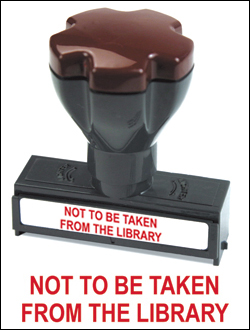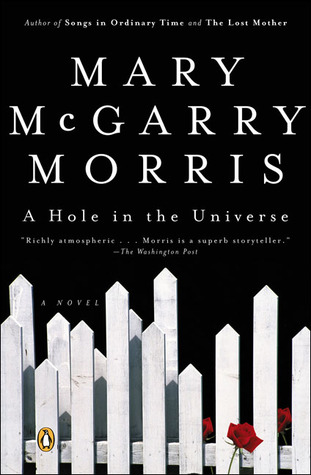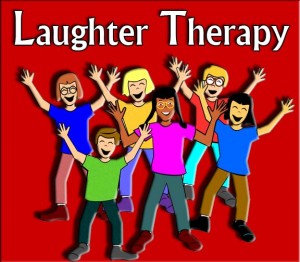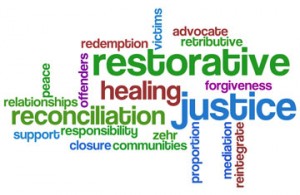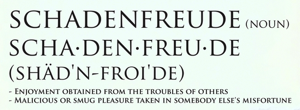[In which, armed with the filthy lucre of the taxpaying citizenry, we continue our mandate to socialize, rehabilitate, and otherwise prepare the incorrigible & recalcitrant for a free life of conformity and Squaresville….]
“Watch your language! Hold your tongue!”
Language Instruction DVDs, CDs, and VHS/cassette tapes are very popular for this inmate population. We keep monthly stats on what is used, how frequently it’s used, and in what medium it’s delivered. Surprisingly, not only are the cassettes still holding up, but inmates choose more of them over any other medium. But these days, for obvious reasons, purchases are confined to CD/DVD. This time, I find the following:
Barron’s Learn Spanish (4 CD)
Barron’s Learn French (4 CD)
Barron’s Learn German (4 CD)
Barron’s Learn Italian (4 CD)
Flash Forward Spanish Vocabulary (CD)
Flash Forward French Vocabulary (CD)
Pun Also Rises, The: How The Humble Pun Revolutionized Language, Changed History, And Made Wordplay More Than Just Some Antics
Although we already own intermediate and advanced lessons on CD, it’s the beginner stuff on tape that we’ve needed to replace. These purchases now allow us to do that. It’s a great day for our Watch Your Language/ Hold Your Tongue program. The pun book will be added to the floor collection, where we have about 50 books on linguistics and wordplay. And since language instruction is mentioned in our 25% materials mandate, we’re on our way to 30% of the total purchase. And that’s good.
Health is Wealth, Especially in the Poky
Although to a large extent the type of health treatment which inmates receive is regulated by the State, inmates have some autonomy over their own health. And in some Departments, certain health information is not permitted to be offered through the Lending Library. We have never been permitted to offer the DSM, for example. And Gray’s Anatomy is also not permitted, in light of an attack at another prison where the perpetrator, when interviewed, admitted to finding information from this text in the Library that helped him commit the assault. So when it comes to health-related information, there may be specific security concerns of your Administration of which you must be aware.
Beyond the orderly running of the prison, health information is offered and prisoners do seek it out. Needless to say (but perhaps not), I buy as much as I can which is specific to the men in my population. This is what I find in both retail and remainder sections:
Dr. Katz’s GT Prostate Health
Men’s Health Big Book Of Food & Nutrition
Why Men Die First: HT Lengthen Your Lifespan
Irritable Bowel Syndrome And Stress Management
Alzheimer’s Disease: Guide For Families And Caregivers
Crohn’s Disease And Ulcerative Colitis
Migraine Brains & Bodies
Good Health For African-Americans
Why Women Live Longer Than Men
Viagra & The Quest For Potency
Every Heart Attack Is Preventable
Men’s Club: HT Lose Your Prostate Without Losing Your Sense Of Humor
Hepatitis C Help Book
Men’s Health GT Peak Conditioning
Banish Your Belly: Ultimate Guide For Achieving A Lean, Strong Body Now
Curing Multiple Sclerosis
I know inmates who suffer with both IBS and migraines, so I seek out this material. Hepatitis C affects the lives of many incarcerated people, so I try updating our holdings for that material. One of my long-time law library patrons has just been diagnosed with multiple sclerosis, so I found something for him….In preparation for this book trip, I took a look at our existing health holdings, and was shocked to find only about 125 titles. I thought there should have been at least a few shelves more. When I mentioned this to one of my circulation clerks, he smiled and said, “Bill, there’s stuff that goes on here that you don’t know about. Guys find a health book that can help them, and they keep it. I don’t agree with that, in fact I think it’s a dirt-bag thing to do, because then someone else can’t use it. But that’s the reality here.”
I’ve often wondered if health material, when offered through the correctional Library, should be considered part of the Self-Help genre? I’m just sayin’.
“What the hell does E=MC squared mean, anyway?” the con asked unabashedly for everyone in the correctional Library to hear….
Because Librarian internet usage is limited to legal research questions (due to something that happened about a year ago related to security) — we don’t have access to current journal articles. The Library is limited to the currency of the science information it can offer, as we can only rely on books and DVDs. Currently we have about (6) shelves of science books, but it’s been a while since I got a large infusion of titles. I decide that this needs to be rectified:
For The Love Of Physics
Mathematical Games & HT Play Them
Evolution Isn’t What It Used To Be
Genesis: What Does It Mean To Be Human? (actually, this is fiction, but I found it with their science books, which means they also thought it was nonfiction, which means we were both fooled….)
Garden Of Unearthly Delights: Bioengineering & The Future Of Food
Geek Logik: 50 Foolproof Equations For Everyday Life
Inside The Human Genome
How Far Is Up? Measuring The Size Of The Universe
Astro Turf: The Private Life Of Rocket Science
Remaking Eden: How Genetic Engineering And Cloning Will Transform The American Family
Weighing The Soul: Scientific Discovery From The Brilliant To The Bizarre
Genethics: The Clash Between The New Genetics And Human Values
Math Doesn’t Suck
Separate Creation: Biological Origins Of Sexual Orientation
Fly: The Unsung Hero Of 20th Century Science
Brief History Of Time: A Reader Companion
Hubble Space Telescope
Night Sky Identifiers
Friendly GT The Universe
Unnatural Selection: Promise & Power Of Human Gene Research
How Life Begins
Do Fish Feel Pain?
Annus Mirabiliis: 1905, Albert Einstein, And The Theory Of Relativity (W/DVD)
Most of these are remainder titles, mainly because remainders stretch that budget, but also because I got 0 title requests for this material this time out which, BTW, is odd. I’ve learned that our population’s intellectual curiosity weighs in heavily with all forms of math, physics, astronomy, and current science trends like cloning, the human genome project and its implications, bioengineering and bioethics, Frankenfood, and the creationism/ Darwinism debate. Science books are stolen with something approaching regularity which, at once, is a testament to their incorrigible ways AND to my impeccable and well-informed tastes in science matters (probably a lot less of one and a little more of the other….)
“I know it says ‘NOT TO BE TAKEN FROM THE LIBRARY,’ but can I have it for a week?”
When the Lending Librarian retired in 1994, I was suddenly handed the responsibility of supervising that Library, the law Library, the segregation law Library, and the libraries in the Hospital Services Unit. Accordingly, I noticed (but I won’t tell you how long it took) that I couldn’t be everywhere at once. I had to decide and quickly what I was going to do about the Reference Room collection, as inmates were stealing from it left and right. I decided to make the collection circulating; it was either that or risk losing a nicely-built collection of useful titles. Also, we expanded the subjects that we keep in the former Librarians’ locked “PC Reference Cabinet” (it actually stands for ‘Protective custody,’ but we tell people that it means ‘Padlocked cabinet’….) These are the reference titles that piqued my interest:
Billboard Book Of Top 40 Hits
Love That Dirty Water! The Standells and the Improbable Red Sox Victory Anthem
Book Of African-American Quotations
Great Speeches On Gay Rights
Great Speeches By African-Americans
Rights Of Man (Thomas Paine)
Six Great Dialogues (Apology, Crito, Phaedo, Phaedrus, Symposium, The Republic)
Complete Idiot’s GT Starting Your Own Business
Videohound Golden Movie Retriever 2012
Leonard Maltin’s 2012 Movie Guide
I say “…piqued my interest” but, of course, that interest is necessarily tempered by the information requests of Library users. We have many musicians hanging around the place (including Your Beleaguered Instructor), so the song guides and directories see tons of use, especially our Billboard Book of Top Pop Singles by the illustrious and prolific Joel Whitburn. Movie fanatics abound, too, so we have every English-language movie guide imaginable (just not updated at the same time, alas….) We also nurture a kind of fetish for quotation books; at present, the collection numbers 43 and growing. Well, we’re rarely stumped by the “Who was it who said….?” query. Small business start-up guides are extremely popular. Not sure why? But I have some theories! Between the oversize reference shelf, PC cabinet, Ready Reference cabinet, Reference Room, and BIP/encyclopedia wall, we have about 1,300 reference books, not including Spanish-language references (100) and reference on other media (100). Not bad for such a small space, and considering that we’re limited mostly to books.
“God brought me to jail and said ‘Now do I have your attention?’”
Some inmates are believers. They fight for their right to practice their faith as they see fit. Could some of this righteousness be disingenuous and deceptive? Probably. But my impression is that people who seek out religious and faith information in prison do so from a genuine desire to know and apply. This impression comes from observing the material they seek, the interlibrary loans they request, the purchase requests they make, and the reference questions they ask. This impression also comes from the discussions I’ve had with inmates in my office or out on the Library floor. The Library has about 200 books, DVDs, and VHS on the major faith systems.
 Why Can’t We Be Good?
Why Can’t We Be Good?
Confessions Of St. Augustine
Varieties Of Religious Experience
CS Lewis Signature Classics (Mere Christianity, The Screwtape Letters, The Great Divorce, The Problem Of Pain, Miracles, A Grief Observed, The Abolition Of Man)
Prayer For People Who Think Too Much: A GT Everyday, Anywhere Prayer From The World’s Faith Traditions
Touched By God: Black Gospel Greats Share Their Stories About Finding God
For inmates who reject faith, you provide contemporary atheist nonfiction, fiction, and books/DVDs presenting the omnipresent(!) Creationism/Darwin debates. It impresses me that atheism is a type of faith or belief, and it’s interesting that in the Dewey scheme (yes, we use Dewey, sue us) atheism is classed under 291. New books in this vein include:
God & The New Physics
Mind Of God, The: Scientific Basis For A Rational World
36 arguments for the existence of God
Rock Of Ages: Science & Religion In The Fullness Of Life
I also bought Darwin’s Sacred Cause and was tempted to include it here, but it belongs elsewhere. Perhaps with biographies, memoir, and autobiography:
Autobiography Of Mark Twain (Volume One)
Memories Of John Lennon
Jeannie Out Of The Bottle
Finding It: And Satisfying My Hunger For Life Without Opening The Fridge
Gladys Knight: Between Each Line Of Pain & Glory
Rickles’ Book
Bedwetter: Stories Of Courage, Redemption, & Pee
Tracy Morgan: I Am The New Black
Darwin’s Sacred Cause
…And my newest favorite title (I’m a title buyer): Another Bullshit Night In Suck City
The remainder of the book buy breaks down into sports:
Knuckler (memoir of a former Red Sox pitcher)
Ones Who Hit Hardest, The
100 Things Patriots Fans Should Know
…and poetry:
Blake’s Selected Poems
Contemporary Irish Poetry
Best American Poetry 2010
Catching Life By The Throat: HT Read A Poem And Why
Next, we’ll talk about picking up the books, getting them to the prison, getting them inside, getting them processed, getting them on the shelves, and getting them ‘advertised.’




